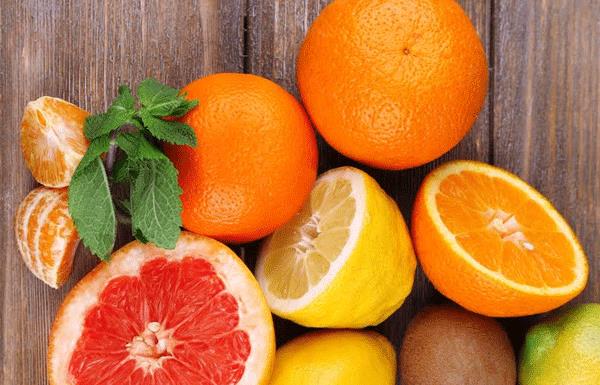Perhaps every mother ever wondered what to eat to have a lot of breast milk? I will be startled to find the answers, they are much simpler than I thought.
content
What should mom eat to have more milk?
Healthy fruits
This painful 9 to 10 day period is just the start of the long road ahead. Child rearing is a joy, also a worry of parents. Immediately after birth , the problem of what to eat to have a lot of milk to breastfeed also makes mothers worry about insomnia.

What to feed your baby, what is easy to abstain from mom, nowadays is different!
What should mom eat to have more milk?
Being able to feed babies with sweet milk is the wish of all mothers. Therefore, the foods that help mothers get plenty of milk are the first choice in the meal. Some of the following foods will help mothers have a plentiful source of milk for their babies, please refer to them:
Green papaya: This fruit is a taboo food for pregnant women, but it is a beneficial dairy dish for pregnant women after giving birth. Papaya contains many vitamins and is high in protein. For a long time, the green papaya dish stewed with the feet of the pork belly is a dish of milk, the effect that any pregnant mother knows about.
Seaweed: Seaweed is a nutritious food, good for blood circulation, detoxification, increase lactation. You know, Korean mothers are very "addicted" to the seaweed soup because it helps restore health after labor and order milk.
This food can be processed into many different dishes such as cooking seaweed and pork soup, seaweed roll rice or seaweed salad ... eat a lot but not get bored.
Vegetables: Cooked vegetables with pork meat are "traditional" dishes in Vietnamese mothers' meal after birth. Shrimps contain lots of vitamins A, C and calcium to help mothers have more milk for breastfeeding and womb shrink quickly.

Suggestions for a postpartum menu for mothers in the month of pregnancy Time to stay for mothers after giving birth is calculated within 3 months and 10 days. According to folk beliefs, pregnant women need to abstain carefully to avoid postpartum. That is why the mother's menu after giving birth in the first months of mothers is "poor in nutrients", only a few dishes are repeated, many mothers feel "bored", ...
Spinach : Spinach has a sweet taste, slightly viscous, cool. Vegetables contain vitamins A, B, iron, mucus. Vegetables have a cooling effect on the body, laxative. Breast milk is therefore fresher and more delicious.
Jute vegetables: Jute vegetables are abundant in the summer, have a cooling effect, are easy to digest, add calcium ... Jute vegetables are often used to cook soup with crab, eaten with rice.
Sweet vegetables: Sweet vegetables are cool, rich in nutritional value, rich in iron, vitamins A, B, and C. Sweet vegetables have the effect of opening up the flow of milk of newborn mothers, helping to laxative ...
Tomatoes: Tomatoes contain a lot of fiber, vitamin C, vitamins of group B, iron, potassium ... that are beneficial for health. Postpartum mothers eat more tomatoes to help supplement the vitamin and increase the amount of lycopene in milk.
Carrots: Not only help mothers increase milk secretion, they also contain beta-carotene, vitamins B, and C and many minerals to help mothers quickly recover from the laborious process. Mom can use carrots to cook soup, make smoothies or simply peel and refrigerate to eat raw.
Healthy fruits
In the matter of what to eat to breastfeed a lot, mothers should not ignore fruits. Although they are considered snacks, if eaten properly, they will bring mothers great health benefits such as skin beauty, body shape, and milk benefits….
Soursop: Soursop is also rich in vitamin C, which strengthens the immune system and resistance to the postpartum female body.

Don't forget citrus fruits for your mother's milk benefit!
Citrus fruits: Fruits of the citrus family are rich in vitamin C and calcium. Calcium will be provided indirectly to the baby through breast milk. From there your baby will be prevented from rickets. Citrus fruits and mandarin oranges also work to benefit milk, and help clear milk glands to help prevent inflammatory diseases of milk glands and milk loss.
However, mothers should not eat too much of these fruits, the acid in the fruit can pass the breast milk into the child's body, adversely affecting the weak digestive system.
Kiwifruit and Berries: Kiwifruit, raspberries, blueberries and strawberries contain all the vitamin C that every dairy mother needs. Our bodies cannot produce or "save" vitamins, so it's important to get vitamin C through the foods we eat every day.

Should and should not eat while breastfeeding When breastfeeding , women need to consume about 2500 calories from food each day. What are the most important nutrients needed and what are the foods to be cautious about or avoid with breastfeeding mothers?
In addition, after giving birth, the mother's body loses a lot of blood, the mother needs to supplement enough protein and iron. Besides nutritious foods, mothers can also eat all their favorite foods, as long as it does not affect the health of themselves and the baby.















